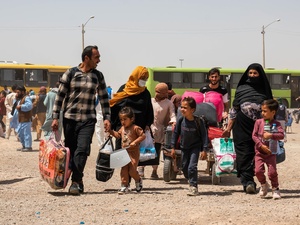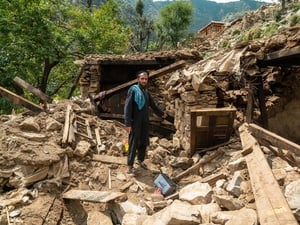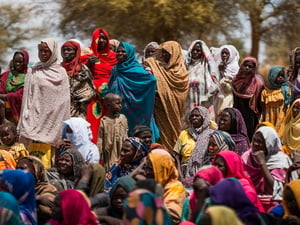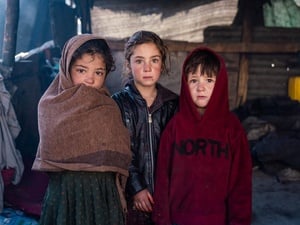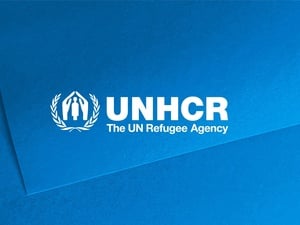Afghanistan Humanitarian Update No. 57
Afghanistan Humanitarian Update No. 57
25 March 2002
At a Glance
- Donors urged to keep pace with operations
- Repatriation exceeds expectations
- More IDPs return to the Shomali Plai
- Afghans await aid at Chaman border
- Afghan Radio to launch humanitarian broadcasts
Donors urged to keep pace with operations
The growing popularity of the assisted repatriation programme for Afghans has underscored the need for continued high levels of international donor support for UNHCR's work in Afghanistan and surrounding asylum states. More than 83,000 Afghans have returned home from Pakistan since March 1 under the programme organized by UNHCR, Afghan authorities and the government of Pakistan.
As the repatriation and rehabilitation operations gain speed with the arrival of spring, UNHCR is asking donors to keep pace by providing an adequate flow of funding. To date, the U.N. refugee agency has received $119 million of the $271 million it requires. But 93 percent of the contributions received have already been committed and fresh injections of cash are needed to ensure that programmes are implemented on schedule.
With the arrival of better weather, UNHCR is opening additional registration centres in Pakistan and is preparing, together with Iranian authorities, to begin assisting refugees home from Iran beginning April 9.
Inside Afghanistan, UNHCR has provided more than $1.6 million in grants to help returnees make the journey home. It has also distributed tens of thousands of returnee packages, including 31,276 plastic sheets, 31,276 blankets, 31,276 jerry cans, 62,552 square metres of sanitary material, 62,552 bars of soap and 15,638 ground mats. Additional supplies are on order and are urgently needed so that returnees get the items they need. UNHCR also needs funds to provide shelter materials like beams, doors, tools and other supplies in a shelter rehabilitation initiative that alone is worth $40 million.
So far, UNHCR has opened 10 relief distribution points in eastern, southern and central Afghanistan where the returnees can collect their assistance package. A total of 32 such centres are planned - one in each of the country's provinces.
UNHCR currently operates one country office (Kabul), five sub-offices, two field offices and 11 field units throughout Afghanistan.
Repatriation exceeding expectations
Nearly half of the more than 83,000 Afghans who have returned from Pakistan since the programme began on March 1 said they were going back to eastern Afghanistan's Nangarhar Province. Another 25 percent returned to Kabul Province. The remainder - more than 20,000 people - repatriated to other areas, primarily in eastern and central Afghanistan. Some, however, have returned to areas as far north as Jawzjan Province on the border with Turkmenistan.
To cope with the demand, UNHCR is rushing to open further registration centres in Pakistan. An additional centre will open in a week in Bajaur Agency at Nawa Pass, on the border between Pakistan and Afghanistan's Kunar Province. UNHCR is also establishing mobile teams to begin processing some of the more than 12,000 refugee families living in Pakistan's North-West Frontier Province who have indicated their readiness to return.
The opening of the Nawa Pass registration centre and the establishment of mobile teams should help relieve pressure on the Takhta Baig registration centre, which has been processing almost twice as many Afghans each day as it was planned to handle.
In Pakistan's southern Baluchistan Province, more than 4,000 families have indicated that they want to return. This includes 3,000 Afghan families settled in Quetta and another 1,000 in Mohamed Kheil camp. The first UNHCR-assisted repatriation from Baluchistan occurred on March 19, when some 400 refugees returned home from Surkhab camp.
The official opening of UNHCR's registration centre in Quetta is set for April 1, and will be accompanied by a mass information campaign.
UNHCR is not encouraging repatriation to Afghanistan at the present time, only making available a small travel grant and returnee kits to families who choose to go home. Afghan heads of family participating in the joint return programme are briefed about areas inside Afghanistan that should be avoided due to continuing insecurity. They also undergo mine-awareness training.
More IDPs return to the Shomali Plai
A joint UNHCR, Ministry of Reparation and IOM programme has assisted the return of thousands of internally displaced people (IDPs) from Kabul city to the Shomali Plain in central Afghanistan. Some 9,000 IDPs from the decaying former Soviet compound in Kabul have returned to their villages through the UNHCR-led initiative, which was launched on 6 March.
Since December, UNHCR and its partners have helped over 17,000 IDPs to repatriate to the Shomali region. UNHCR provides an aid package of tents, plastic sheets, blankets, jerry cans, buckets, shawls, sweaters, cooking stoves and charcoal. They also get wheat from the World Food Programme.
Afghans await aid at Chaman border
Some 10,000 to 15,000 desperate Afghans still await a solution to their plight just inside the Pakistan border at Chaman, Baluchistan Province. Many have been waiting at the site since February 21, when registration was halted for the Eid holiday. It has not yet resumed.
UNHCR is already caring for more than 231,000 Afghan refugees in 19 new camps that have been established in Pakistan's border regions since last October. The agency continues to transfer to the camps willing refugees who approach its office in North-West Frontier Province. Relocation operations in Baluchistan halted on March 18.
So far this year, more than 47,000 new Afghan refugees were admitted by Pakistan at the Chaman crossing. But the border was clamped shut in late February. Thousands are now stuck on the edge of UNHCR's Killi Faizo camp.
UNHCR distributes blankets, water and WFP biscuits to the new arrivals, but the newcomers desperately need to leave the squalid frontier site.
Afghan Radio to launch humanitarian broadcasts
UNHCR and Afghanistan Radio and Television signed an agreement on March 24 for a humanitarian programme to be broadcast on the state-owned network.
Abdul Hafiz Mansoor, the network's president, welcomed the agreement under which UNHCR pledged to provide equipment and production support. Mansoor said Afghans in exile are free to return to Afghanistan and that the Interim Administration of Chairman Hamid Karzai will see to it that they all welcomed in their villages. But, he added, "It is simply not enough to tell refugees to come - we also need to talk about freedom, security and job opportunities."
UNHCR and Afghan Television will begin a 15-minute weekly humanitarian programme in both Pashto and Dari. Titled "Coming Home," the programme will carry news, interviews with refugees, government officials and relief workers, travellers' tales, and letters from listeners. The first programme is expected to be broadcast in early April. Beginning in June, the programme will be expanded to twice a week.


